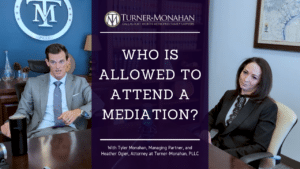Custody battles pose as one of the most complicated parts of divorce hearings. These cases can get even more sensitive when one of the parents passes away. In such instances, whether it’s the father or mother, who becomes a single parent after the death of their spouse, they must know their legal rights and responsibilities.
Before taking any step, it is crucial to understand if the law will allow you to get complete custody in the state of Texas, making you the primary parent. As custody cases have elaborate laws and every case is different, the solutions cannot be generalized.
It is best to consult an experienced attorney to gain insights into Family Law and align your situation with them to know what route you can take to land in the most fruitful situation. Schedule a free consultation with Turner-Monahan, PLLC., Fort Worth, Texas, at https://tumolaw.com/contact-us/, and discuss your case in detail.
Who Can Get Custody Of The Child?
After the death of the custodial parent, there are legal guardians that the child can go to. These include:
- The non-custodial parent
- Grandparents
- Relatives
- Godparents
- Family friends
- Neighbors
- State Foster System
How Is A Child Custody Case Affected In The Case Of The Death Of A Parent?
In the video, Managing Partner Tyler Monahan of Turner Monahan PLLC explains that whether or not a parent gets child custody if the other parent passes away depends on the circumstance. For example, whether you’re married or not. However, there is no law that says the other parent gets the children by law. The courts presume that parents are acting in the best interest, and so does the law.
There isn’t a law that says one parent or the other would have the children because those are their children, and they have a right to have them. If the courts have already adjudicated the father of the child, or there’s already an order establishing the parent-child relationship with the father and the mother, there could be circumstances where a third party intervenes in the case.
Suppose the children had been residing with a relative or another person. In that case, you could have a conundrum situation where maybe one parent is not the default parent to where the child or children are going to reside with him if one parent passes away. So, there would be a thumbprint in each circumstance, and you would need to contact a firm like Turner Monahan to gain insights into the laws and legal issues you can face.
The Case of Child Custody In Texas Courts
According to the Texas courts, they will award the child custody to the surviving parent. However, if the custodial parent has passed away, the court will see if the non-custodial parent is fit to take care of the child. The court’s scrutiny will include the history of any child abuse, drug use, or other cases that can make the parent unfit to gain custody.
Additionally, if the deceased parent had remarried and their new spouse had adopted your child, you can no longer be at the top of the line of custody succession.
For the non-custodial parent to get sole custody, they will have to establish paternity. This will require a signed acknowledgment that declares paternity and the proof of birth certificate that includes the biological father’s signature.
The Factors That Affect The Non-Custodial Parent From Getting Sole Custody
As the Texas Courts always work to provide a better living for the child, there are cases where the non-custodial parent will be refused to become the primary custodial parent. Here are the situations that can become the basis for the court’s refusal:
- The non-custodial parents had been terminated of their parental rights in the previous custody battle
- A step-parent adopts the child, as explained earlier
- The non-custodial parent succeeds at proving the parentage, but it hasn’t been established, due to which the mother’s will is not overridden
- The custodial parent leaves a will that shows approval of transferring custody to legal guardians other than the non-custodial parent
Why Hire An Attorney From Turner-Monahan?
You can count on Turner-Monahan, PLLC, for assistance in obtaining conservatorship or custody of your child as part of a divorce or in an independent suit.
In addition, you can get strong support from our child custody lawyers in Fort Worth regarding various related legal issues. These include custody schedules, visitation rights, relocation, adoption, and paternity matters. Considering that each situation presents a unique challenge, we strive for flexibility in all we do.
The years of experience have enabled us to represent parents’ interests in child custody matters. We fight for your rights through knowledgeable and compassionate representation. Schedule a free consultation with Tyler Monahan to discuss your case.
Furthermore, you can read through the blog posts to learn information about “What to do when a child doesn’t want to visit the other parent” or “How can I stop my ex-wife from changing our child’s surname from mine to hers?” along with other helpful articles on our blog.
Disclaimer
The commentary and opinions are for informational and educational purposes only and not to provide legal advice. You should contact an attorney in your state to obtain legal advice concerning any particular issue or problem. You can become a client and enter the attorney-client privilege only after hiring Turner-Monahan, PPLC, by signing a written retainer agreement.


